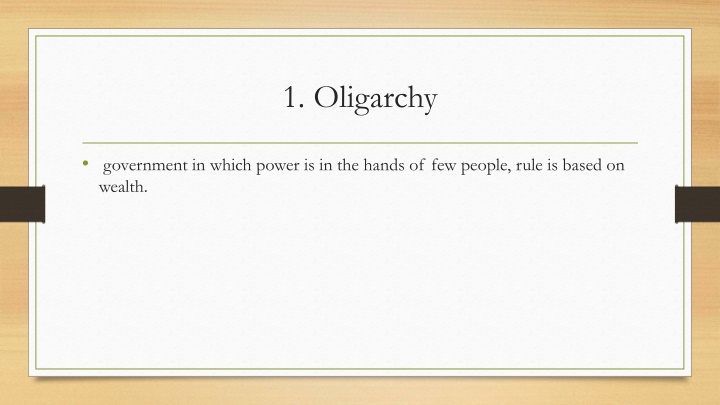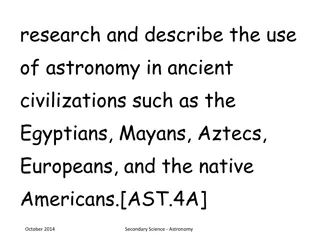Key Historical Concepts and Contributions
Explore various historical concepts like oligarchy, Pax Romana, consulship, roles of patricians in Roman government, Hellenistic culture, mathematical contributions by Pythagoras and Euclid, origin of Zoroastrianism in the Persian Empire, major characteristics of the Roman Empire and Greece, geography of Rome, and innovations that promoted trade. A comprehensive overview of important historical topics and their significance.
Download Presentation

Please find below an Image/Link to download the presentation.
The content on the website is provided AS IS for your information and personal use only. It may not be sold, licensed, or shared on other websites without obtaining consent from the author.If you encounter any issues during the download, it is possible that the publisher has removed the file from their server.
You are allowed to download the files provided on this website for personal or commercial use, subject to the condition that they are used lawfully. All files are the property of their respective owners.
The content on the website is provided AS IS for your information and personal use only. It may not be sold, licensed, or shared on other websites without obtaining consent from the author.
E N D
Presentation Transcript
1. Oligarchy government in which power is in the hands of few people, rule is based on wealth.
2. Pax Romana Period of peace and prosperity in Rome
3. Consul One of the two elected officials to command the army or direct government.
4. Patricians and their role in Roman government? Member of wealthy privileged class. The only ones able to run for office (the Senate)
5. Hellenistic Greek culture that spread from the reign of Alexander the Great; civilization, language, art, science, and literature.
6. Describe two mathematicians and contributions to Geometry Pythagoras invented music notations and the Pythagorean theorem Euclid invented Geometry
7. What religion originated in the Persian Empire? Zoroastrianism -- the world s first monotheistic religion
8. What are major characteristics of the Roman Empire? Laws? Religion? Roads, concrete, arches, colosseum, gladiator, dome, laws= 12 tables, innocent until proven guilty. Religion= polytheistic, Gods adopted from greeks
9. What are major characteristics of Greece? Greek Geography? Who could Vote in Greece? Mountainous which created independent city-states Free Male citizens
10. What is the geography like in Rome? What effects did this have on the empire? Rome is central to the Italian peninsula and central to the Mediterranean sea ideal for dominating trade and conquering
11. Which innovations promoted trade in the Persian Empire? Coins and the Royal Road for trade
12. What were two major Roman architecture elements in buildings from the time? Arches and domes
13. What is the significance of Cyrus the Great 14. and Alexander the Great? They both conquered vast empires. Cyrus was tolerant of other cultures. Alexander revenged Athens by conquering the Persians and spread the Hellenistic/Greek culture.
15. What is the significance of Julius Caesar? How did he die? Became a dictator and helped poor people. Julius was stabbed to death by senate.
16. Describe the Peloponnesian War. War between Athens and Sparta. Sparta won. Both cities weaken and were overtaken by Alexander the Great.
17. Compare and contrast life in Sparta and Athens Athens creativity, beauty, individuality (freedom of expression) Sparta discipline duty strength (militaristic)
18. How did Twelve Tables (laws of Rome) influence the legal systems of the world to present day? You are innocent until proven guilty Right to a defense
19. Greece vs. Rome GREECE Little freedom in Athens, more in Sparta but could not vote Polytheism Columns ROME Socially equal to men, but could not vote polytheism Arches, domes, concrete, aqueducts WOMEN? RELIGION? ARCHITECTURE
20. Describe Buddhism A religion that is mostly associated with mediation, the Four Noble Truths and nirvana Where did it originate? India How did Buddhism Spread? Trade and Cultural diffusion
21. How is the Fall of Rome similar to problems facing the Han dynasty in China? Invasions of people from the north Government corruption assassinations of leaders Economic problems including over taxing citizens























